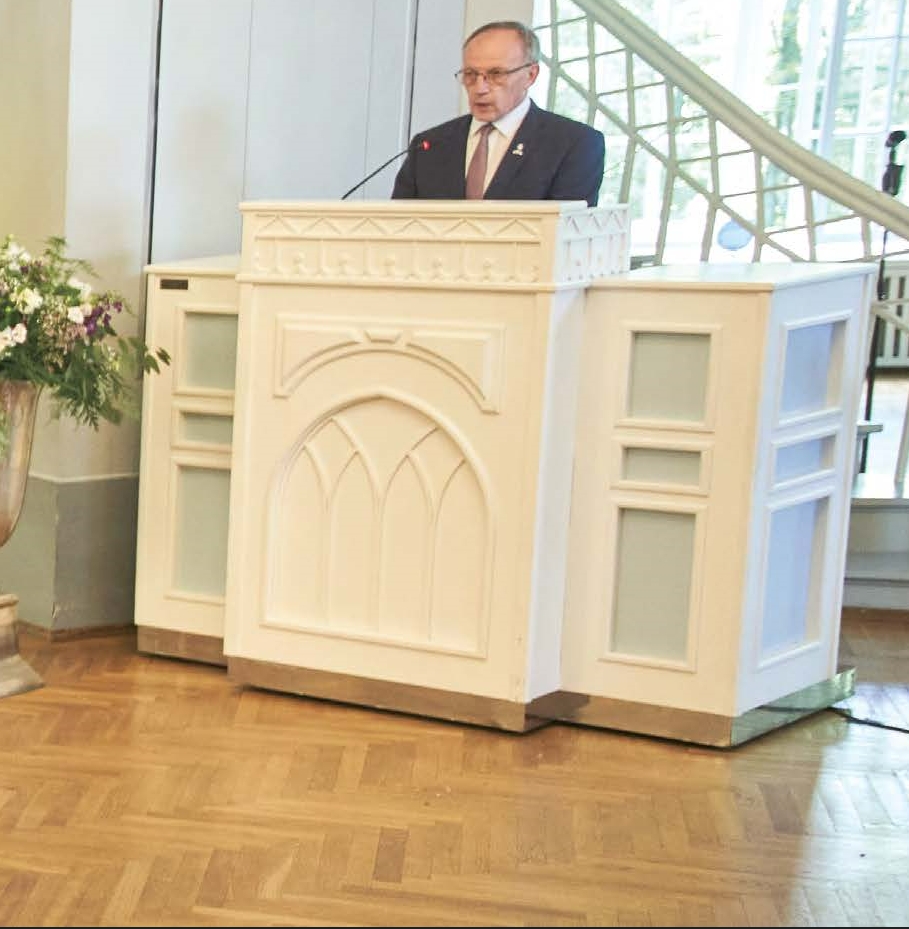Tartu Ülikooli rektori kõne raamatukogu 220. aastapäeval
Abstract
Speech made by Rector of the University of Tartu Toomas Asser at the Festive Assembly to Mark the 220th Anniversary of the UT Library
The guiding principle of the University of Tartu Library states that the library is a „Meeting Place of Wisdom and Youth.” Indeed, while wisdom and youth may not always go hand in hand in an individual’s life, this slogan should not be interpreted to mean that young people lack wisdom before reaching university and the library. Our young people are wise. However, the library serves as a focal point that brings these two together, allowing the youth to experience the measure of wisdom and the wise to feel younger. In reality, the role of the library is to connect all individuals who have a desire to learn something new, including the young awaiting their university journey, those who have long since completed their university studies, or those whom life has not brought to university at all.
It is very symbolic that we celebrate the great anniversary of the University of Tartu Library right here, in this space, in this building where the library operated for a full 180 years. I believe that every University of Tartu graduate has a story to tell about the library, whether it was born within the walls of the old Cathedral or in the current building on Struve Street. Personally, I started borrowing books in this building when I was still a high school student. Later, during my university studies, my main trajectory was between this building and the old Anatomy Building.
Over the 220 years of the library’s existence, the people working here have not only done it with dedication but also with great passion. It might be more accurate to say that for them, it has not always been just work, but life. For instance, the founder of the library, Karl Simon Morgenstern, was so passionately dedicated to his library that when Emperor Nicholas I visited it in 1829, university Rector Moier appointed not Morgenstern, but the young librarian Emil Anders, as the emperor’s escort. This was purely because Morgenstern would have been too intrusive and verbose as the emperor’s escort and would not have been able to restrain himself when speaking about the library. Emil Anders, a young man who had, at the time of the emperor’s visit, worked at the library for only three years, was capable of answering the emperor’s questions modestly with a „yes” or „no.” In his memories, Anders described how his experienced colleagues retired only when they could no longer walk up the Toomemägi every day. When Anders was himself facing the same problem as an elderly man, he did not leave his post; instead, he moved to live in the library. Since today’s event is titled „The Library is My Homeland,” it is fitting to mention Emil Anders as an example of how, despite many efforts to move away from Tartu, he could not do it ... because the library was truly his homeland. His soul resided in that building.
My previous words are not meant as an insinuation to the current library staff. I believe and hope that in the present time, people are able to separate work and personal life, even though I know that the passion for library work is with you even outside working hours. This dedication gives the library its almost palpable ethos. This atmosphere can be felt at every step in the new library building on Struve Street as well. Speaking about how the library of today is much more than just a place to borrow books would take a whole conference, so I will not dwell on it at length on this festive day. In any case, it is a pleasure to see that the library aligns itself with the
academic community’s needs, technological advancements, and societal changes. Keep it up!
Congratulations! Long live and flourish, University of Tartu Library!
Downloads


